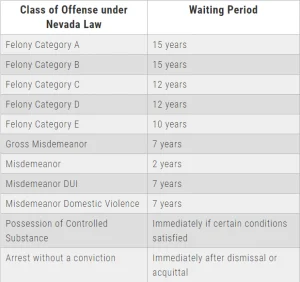State residents and visitors should understand the driving under the influence (DUI) laws in Nevada and their consequences. The penalties can be expensive and harsh, especially when they affect one’s ability to legally operate a vehicle in the future. Learn the laws and fines associated with a conviction to better help with the search for a DUI lawyer for one’s case.
What Does “Under the Influence” Mean?
If a driver’s blood alcohol concentration (BAC) is .08% or more within two hours of getting behind the wheel, he or she is considered driving under the influence in the state of Nevada. Nevada’s DUI laws prohibit any motorist from operating a motor vehicle—including motorcycles, bicycles, and boats—while under the influence of drugs or alcohol. For commercial drivers, the legal BAC limit is .04%, whereas the limit is .02% for drivers under the age of 21.
Nevada DUI laws dictate that the first offense of operating a motor vehicle while under the influence is a misdemeanor with standardized penalties. However, the punishment is harsher in the case of a prior DUI, a vehicular accident causing substantial bodily injury or death, or if the driver’s BAC reads 0.18% or higher.
Nevada DUI Penalties
Under NRS 484C.400, the standard first punishment for a DUI includes:
Two days to six months in jail or 24 to 96 hours of community service
Required attendance at Nevada DUI School or DUI Court
Temporary license suspension and a penalty fee
Fines of up to $1,000 and additional court fees
Required attendance at a Nevada Victim Impact Panel
Installment of a breath interlock device in the driver’s vehicle
After the third DUI offense in Nevada, the driver will be charged with a felony.
For a felony DUI conviction, the penalties increase in severity; they can include years of imprisonment and fines ranging from $2,000 to $5,000.
Contact a DUI Attorney for Legal Assistance
Understanding Nevada DUI laws isn’t easy; you should call an experienced criminal defense lawyer immediately after a DUI arrest. Karen A. Connolly is a renowned DUI lawyer in Las Vegas and can help with your case. She has the qualifications to work on high-profile federal cases and boasts stellar feedback from previous clients. If you or a loved one faces DUI charges in Nevada, contact the Law Offices of Karen A. Connolly, Ltd. for a free legal consultation.

